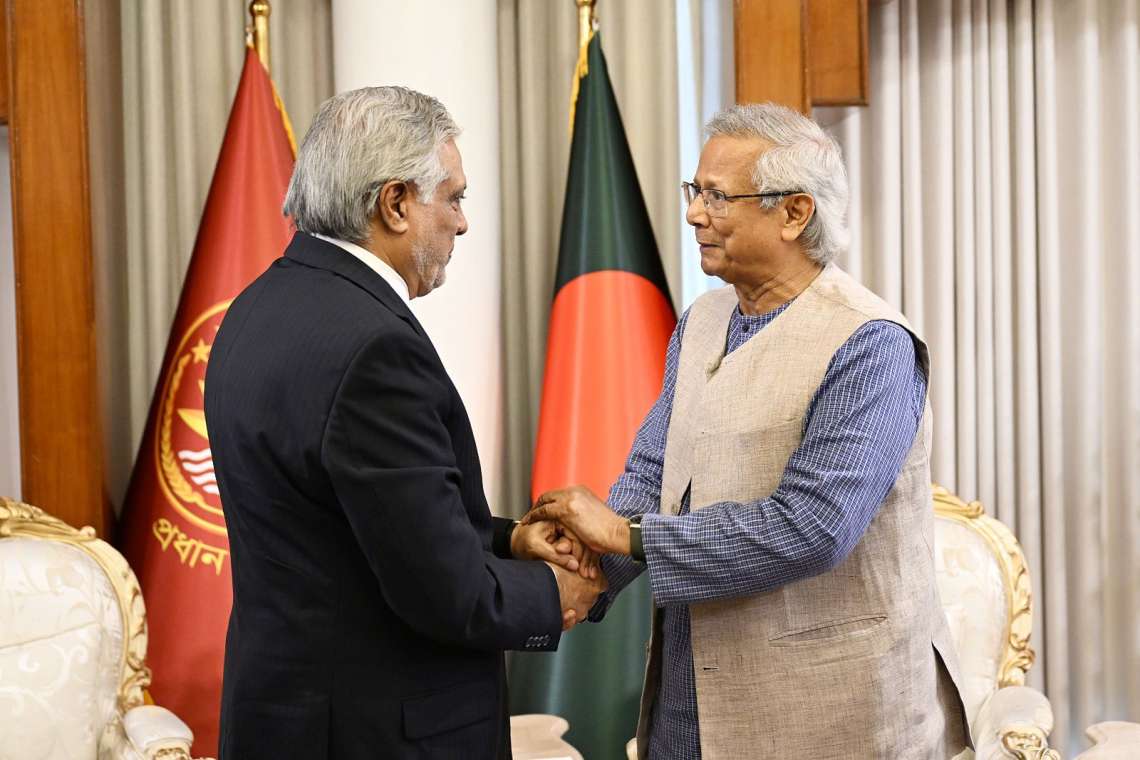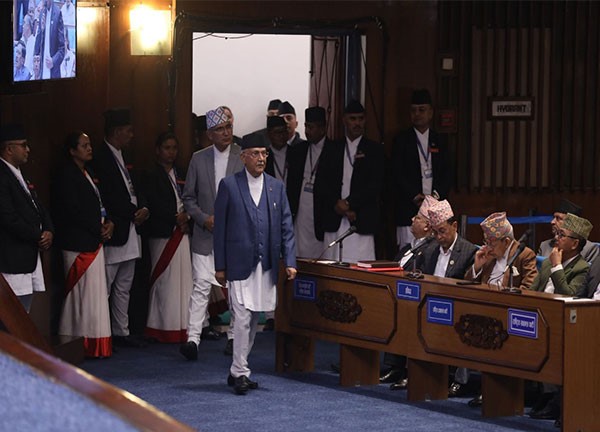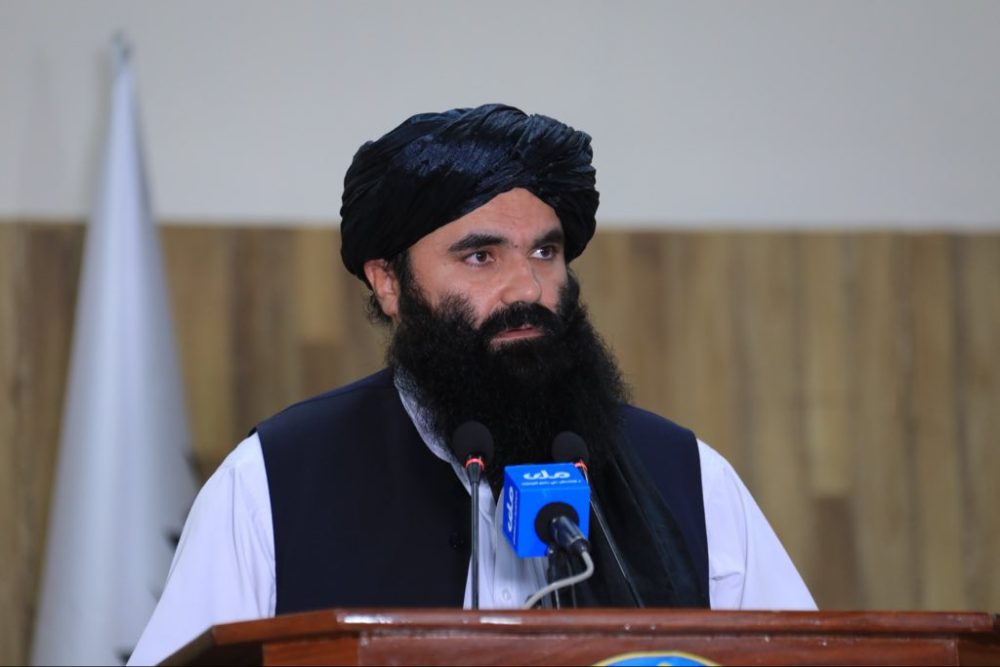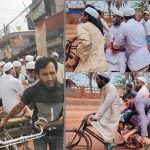The verdict, delivered on Sunday, comes after weeks of violent protests – led predominantly by students – that led to over 100 casualties…reports Asian Lite News
Following protests that resulted into the deaths of over 100 fatalities over contentious civil service hiring rules, Bangladesh Supreme Court ruled to slash the quota reserved for relatives of war veterans’ from 30 per cent to 5 per cent while allowing 93 per cent to be allocated based on merit and the remaining 2 per cent will be earmarked for members of ethnic minorities, transgender individuals, and the disabled, Al Jazeera reported, citing, local reports.
The unrest was sparked by students who have long demanded an overhaul of the quota system, which originally reserved 30 per cent of government jobs for descendants of veterans who fought in Bangladesh’s war of independence in 1971. Critics argued that this system favoured allies of the ruling Awami League party, which spearheaded the liberation movement against Pakistan.
In response to the escalating protests, the Supreme Court ruled to slash the quota reserved for veterans’ descendants from 30 per cent to 5 per cent. The majority of government jobs, 93 per cent, will now be allocated based on merit, while the remaining 2 per cent will be earmarked for members of ethnic minorities, transgender individuals, and the disabled.
The verdict, delivered on Sunday, comes after weeks of demonstrations led predominantly by students. Tensions reached a peak when clashes erupted between protesters and groups allegedly linked to the Awami League, resulting in accusations of excessive force by the police against demonstrators, as reported by Al Jazeera.
Prime Minister Sheikh Hasina’s government had previously attempted to abolish the quota system in 2018, but the High Court reinstated it last month, reigniting public outrage and prompting renewed protests.
Throughout the unrest, the government imposed stringent measures, including a curfew, the deployment of military forces, and a communication blackout that isolated Bangladesh from the outside world. Reports emerged of police using tear gas, rubber bullets, and smoke grenades to disperse protesters, exacerbating public anger.
Hasina defended the quota system, emphasising the contributions of veterans to the nation’s independence regardless of their political affiliations. However, her government’s efforts to portray demonstrators as unpatriotic further fueled discontent among the protesters.
Home Minister Asaduzzaman Khan announced a temporary easing of the curfew to allow residents to stock up on essentials, but uncertainty loomed over its duration. The government’s decision to sever phone and internet connections contributed to what was described as an “information blackout.”
The heavy-handed response from authorities intensified calls for broader political reforms beyond the quota issue, with demands growing for the government’s resignation. Protesters asserted that the demonstrations were not just about job quotas but also about the loss of lives, the destruction of property, and the stifling of information flow.
Political analysts viewed the protests as a pivotal moment for Bangladesh, suggesting that the government faced a significant challenge to its legitimacy. Despite the turmoil, opinions diverged on the potential outcomes, with some predicting political survival for Hasina’s administration while others speculated on the protesters’ ability to sustain pressure for systemic change.
The court’s decision to reduce the quota system was met with cautious optimism by some protesters, although the broader implications remained uncertain amid ongoing restrictions and tensions.
In response to the escalating crisis, Hasina’s government declared public holidays and restricted non-essential services to manage the situation, Al Jazeera reported. (ANI)
Nepal students share ordeals in Bangladesh
Dozens of Nepali students managed to return to Nepal from violence-hit Bangladesh on Sunday. Upon arrival at the Tribhuvan International Airport in Kathmandu, the returnees could not contain their emotions as they recounted the situation they encountered back in Dhaka.
It only had been three months since Sadiskhya Basnet flew to Bangladesh for her medical studies but had to flee back to Kathmandu due to the rising violence and communication blackout in Bangladesh.
“Back there all the communication means are down, so that the information cannot pass out. All the means of communication have been seized, and the situation there is critical,” Basnet told ANI upon arrival at the airport on Sunday afternoon.
Basnet, a medical student in Inam Medical College claimed that security personnel came in search of the students who participated in the protest to detain them.
“Those Bengali friends who went onto the protests in the daytime, the Police used to come to our college during the night in search of them, after this we started to worry and phone communication with family was also not working. We were able to contact our family through the consultancy and come back to Nepal after making all the arrangements on our own,” Basnet explained further.
“Curfew also has been imposed there, no internet and communication means, even we could not go out of the hostel, we could not remain disconnected with our family, how could we have sat back there?” she added.
Another medical student stood beside her father at the exit of the Tribhuvan International Airport in Kathmandu relaxed and happy to be back from the violence-hit areas.
“I feel safe obviously upon being back,” the student, Krishpa Rai replied.
Rai said that the communication blackout had made it scarier with the situation turning grim for not being able to contact the family.
“We were pretty scared because we couldn’t contact our parents. We couldn’t contact anyone, all of us were really scared.”
As per Nepal’s Ministry of Foreign Affairs, an estimated three thousand five hundred Nepali students are in Bangladesh in the course of their studies. On Saturday, the ministry said that approximately 800 Nepali students left Bangladesh for Nepal by air or via land border points.
“We packed our belongings and arranged the vehicle and moved out in the night all on our own. We stayed in the airport all night waiting for the entry and caught our flight in the morning and flew back to Kathmandu, all these were done by ourselves,” Maulata, another Nepali student shared her story with ANI about how she along with her friends managed to land Kathmandu from Dhaka.
Nepal’s Foreign Ministry has reiterated the government’s commitment to ensuring the safety and security of all Nepali students in the South Asian country that has witnessed violent agitation in the past week.
“The Embassy of Nepal in Dhaka has coordinated with most of the students to facilitate their safe travel from various places in Bangladesh to Dhaka airport or to related border points,” the ministry said in a post on X late evening on Saturday.
“It has been closely coordinating with universities, concerned authorities, and law enforcement agencies in Bangladesh.”
Bangladeshi students intensified their agitation against the quotas for government jobs, which included 30 per cent reservation for the families of those who fought for independence from Pakistan.
The Bangladesh government has ordered all offices and institutions to stay closed for two days after over 120 people were killed this week during the protests, according to international news agencies.
In the capital city Dhaka, the epicentre of the protests, security forces have set up roadblocks to enforce a curfew.
Nepali Prime Minister KP Sharma Oli updating a status on Facebook, claimed the government made arrangements for Nepali students to return home.
“As per the demand of the student’s family members, arrangements have been made to repatriate 17 students studying at Savar-based Enam Medical College via Dhaka airport at 4 am on Sunday,” Nepal Prime Minister Oli wrote on social media late on Saturday evening.
In the post, he stated that the initiative came after meeting family members of some students in Bangladesh. He has also asked the concerned people to fill up the online forms as arranged by the Ministry of Foreign Affairs.
Meanwhile, posting an ‘urgent notice’ on X, Foreign Minister Arzu Rana Deuba urged the students, their guardians and kin to submit applications through the online link arranged by the ministry for the same purpose.
As the student-led anti-government protests surge in Bangladesh, the country has imposed a curfew, and the authorities have disabled mobile internet services nationwide, citing the need to curb disinformation.
Following the curfew, the authorities have also shut down schools and universities indefinitely. Bangladesh announced a nationwide curfew on Friday evening after clashes between police and various student groups killed dozens of people.
The protests started after the students’ violent backlash against a new policy to reserve a portion of government jobs for descendants of the nation’s freedom fighters. Moreover, the protesters attacked the state television headquarters in Dhaka and set fire to police booths on Thursday as they called for a “complete shutdown” of the country.
The ongoing running street battles between security forces using rubber bullets and tear gas have forced life in several neighborhoods of Bangladesh to a halt.
The protests have been driven by demands for reform of the country’s quota system for civil service jobs, which reserves positions for specific groups, including descendants of those who participated in the 1971 War of Independence against Pakistan.
Students like Sushmita Kumari who returned back from Bangladesh vow to return back for her degree after the situation calms down.
“I am in final years of my studies, I want to complete my studies and need my degree, I would return there if the situation goes right. If they hold talks and solve it…” Sushmita Kumari said. (ANI)
ALSO READ: Bangladesh Issues ‘Shoot-on-Sight’ Order














